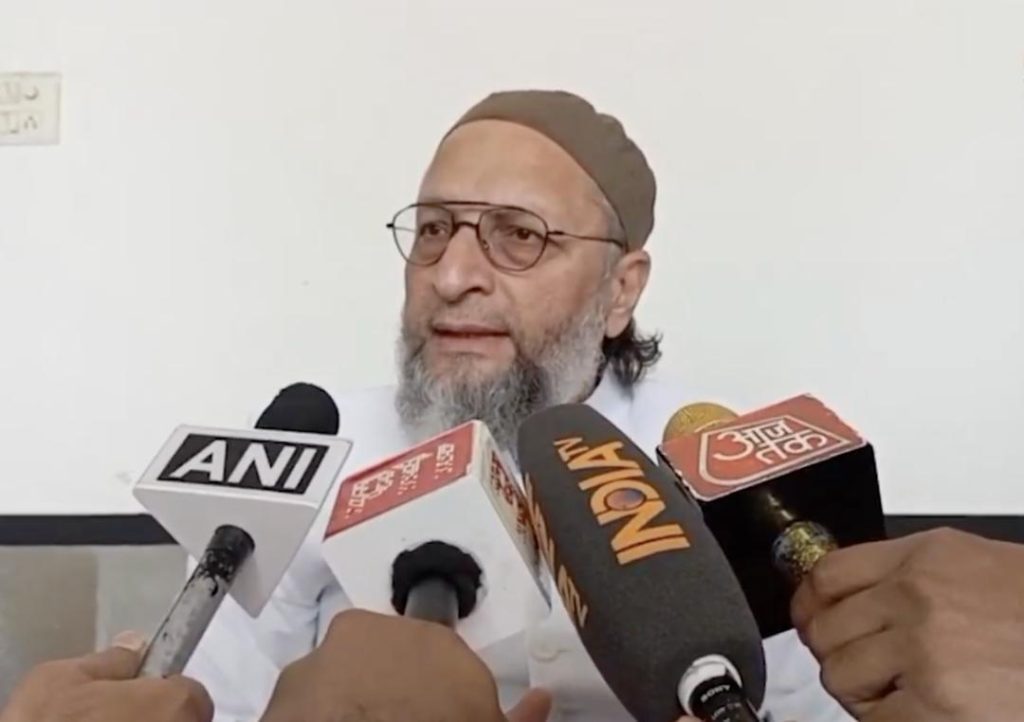
Arrest 4-5 ministers & govt is gone: Owaisi on PM-CM removal Bills
In a recent development, Asaduddin Owaisi, the chief of the All India Majlis-e-Ittehadul Muslimeen (AIMIM), has sparked controversy by stating that if four to five ministers are arrested, the government would collapse. This statement was made in response to the Constitution (130th) Amendment Bill, which seeks to provide for the removal of the Prime Minister, Chief Ministers, and ministers who have been arrested for at least 30 days.
Owaisi’s statement was made during a discussion on the proposed bill, which has raised concerns about the potential abuse of power and the erosion of trust in the democratic system. The bill, if passed, would allow the President to remove the Prime Minister and other ministers from office, raising questions about the checks and balances in the system.
“This proposed bill is saying that the President can remove the Prime Minister. What is this?” Owaisi was quoted as saying. “Just arrest four-five ministers, and government is gone. What is the guarantee that this power won’t be misused?”
Owaisi’s concerns are not unfounded. The proposed bill has been criticized for its lack of clarity and the potential for abuse of power. The bill allows for the removal of Prime Ministers and other ministers who have been arrested for at least 30 days, but it does not specify the criteria for removal or the process for doing so.
The bill has also been criticized for its potential impact on the stability of the government. If the Prime Minister or other ministers are removed from office, it could lead to a crisis of confidence in the government and potentially destabilize the country.
Owaisi’s statement has sparked a debate about the role of the President in the removal of Prime Ministers and other ministers. Some have argued that the President should have the power to remove the Prime Minister in certain circumstances, while others have argued that this power should be exercised with caution and only in extreme circumstances.
The debate has also highlighted the importance of checks and balances in the system. The proposed bill has been criticized for its potential to erode trust in the democratic system and create a culture of impunity. The bill has also been criticized for its potential to undermine the independence of institutions and the rule of law.
In conclusion, Owaisi’s statement has raised important questions about the proposed bill and its potential impact on the stability of the government. The bill has been criticized for its lack of clarity and the potential for abuse of power, and Owaisi’s statement has highlighted the importance of checks and balances in the system.
Asaduddin Owaisi’s comment has sparked a national debate on the proposed bill and its implications for the government and the country. The bill has been criticized for its potential to erode trust in the democratic system and create a culture of impunity. The bill has also been criticized for its potential to undermine the independence of institutions and the rule of law.
The debate has also highlighted the importance of transparency and accountability in the government. The proposed bill has been criticized for its lack of transparency and the potential for abuse of power. The bill has also been criticized for its potential to undermine the accountability of the government and the rule of law.
In conclusion, Owaisi’s statement has raised important questions about the proposed bill and its potential impact on the stability of the government. The bill has been criticized for its lack of clarity and the potential for abuse of power, and Owaisi’s statement has highlighted the importance of transparency and accountability in the government.






